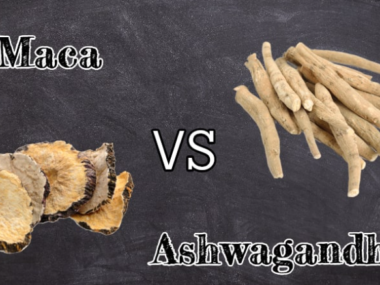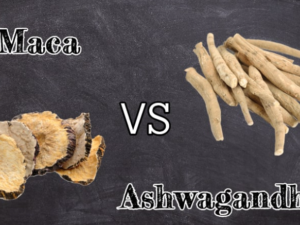Nootropics and antidepressants are both commonly used to improve cognitive function and mood. However, the question arises whether it is safe to take them together.
While nootropics and antidepressants can be taken together, it is important to consult a medical professional before doing so. Both types of drugs affect the brain’s chemistry, and taking them together may cause potentially harmful interactions.
Nootropics may affect the absorption and efficacy of antidepressants, or they may have adverse effects when taken with certain antidepressants. Similarly, some antidepressants may enhance or reduce the effects of nootropics, leading to potential risks and side effects.
It is crucial to carefully consider the potential benefits and risks of taking nootropics and antidepressants together. Potential benefits may include enhanced cognitive function and mood, while risks may include adverse side effects or interactions.
Medical professionals and experts may advise on the best practices for minimizing risks and maximizing benefits when taking nootropics and antidepressants together. Additionally, there are alternative options for improving cognitive function and mood, including making lifestyle changes and trying natural remedies.
Understanding Nootropics and Antidepressants
Nootropics and antidepressants are two types of drugs that are commonly used for different purposes. Nootropics, also known as “smart drugs,” are substances that are believed to enhance cognitive function, while antidepressants are used to treat depression, anxiety, and other mental health disorders.
Nootropics come in various forms, including pills, powders, and drinks, and can be either synthetic or natural. They are believed to improve memory, creativity, and focus. Antidepressants, on the other hand, are prescription drugs that work by altering the levels of neurotransmitters in the brain, such as serotonin and dopamine.
While these two types of drugs have different uses, they both affect the brain’s chemistry. Therefore, there is a possibility of interaction between the two types of drugs when taken together. Some nootropics may affect the absorption or efficacy of antidepressants, while some antidepressants may enhance or reduce the effects of nootropics.
It is essential to speak with a medical professional before taking both nootropics and antidepressants together. They can advise on the potential risks and benefits and recommend the best course of action based on individual needs. It is also important to closely monitor any adverse reactions when taking both drugs together.
There are alternative options for improving cognitive function and mood, including making lifestyle changes such as getting enough sleep, exercising regularly, and practicing stress-reducing techniques. Natural remedies such as St. John’s Wort or SAM-e may also be considered as alternatives.
Interaction Between Nootropics and Antidepressants
When taking nootropics and antidepressants together, there is a possibility of interaction between the two types of drugs. The effects of the interaction can vary depending on the specific drugs involved and the individual’s body chemistry.
Nootropics can affect the absorption and efficacy of antidepressants. For example, nootropics such as piracetam and phenylpiracetam may increase the uptake of certain antidepressants, leading to potentially harmful levels of the drug in the body. Conversely, nootropics such as phenibut may interfere with the metabolism of certain antidepressants, reducing their effectiveness.
Similarly, some antidepressants can interact with nootropics and cause potential side effects. For instance, SSRIs such as fluoxetine and sertraline may increase the risk of serotonin syndrome when taken with certain nootropics that affect serotonin levels. This can lead to symptoms such as agitation, confusion, and high fever.
How nootropics can affect antidepressants and the body
Nootropics can affect antidepressants and the body in various ways.
Firstly, some nootropics may enhance the absorption and efficacy of antidepressants. For example, nootropics such as piracetam and aniracetam may increase the uptake of selective serotonin reuptake inhibitors (SSRIs) such as fluoxetine and sertraline. This can lead to higher levels of the drug in the body, potentially increasing the risk of adverse effects.
Secondly, some nootropics may interfere with the metabolism of antidepressants, reducing their effectiveness. For example, nootropics such as phenibut and phenylpiracetam can interfere with the enzymes that break down SSRIs, potentially reducing their efficacy.
Thirdly, nootropics can have their own effects on the body that can potentially interact with antidepressants. For example, some nootropics such as modafinil and armodafinil can affect the levels of dopamine and norepinephrine in the brain, potentially interacting with antidepressants that affect these neurotransmitters.
Lastly, nootropics can have their own potential side effects, which can potentially interact with antidepressants. For example, some nootropics such as racetams can cause headaches and anxiety, which can exacerbate the side effects of antidepressants
How antidepressants can affect nootropics and the body
Antidepressants can also affect nootropics and the body in various ways.
Firstly, antidepressants can potentially interact with the mechanisms of action of certain nootropics. For example, selective serotonin reuptake inhibitors (SSRIs) such as fluoxetine and sertraline can increase the levels of serotonin in the brain, potentially interacting with nootropics that also affect serotonin levels. This can lead to a potentially dangerous condition called serotonin syndrome, which can cause symptoms such as agitation, confusion, and high fever.
Secondly, some antidepressants can affect the metabolism of nootropics, potentially reducing their efficacy. For example, some tricyclic antidepressants such as imipramine and amitriptyline can inhibit the enzymes that break down certain nootropics, potentially leading to higher levels of the drug in the body.
Thirdly, antidepressants can have their own potential side effects, which can potentially interact with the side effects of nootropics. For example, some antidepressants such as SSRIs can cause headaches, which can exacerbate the headaches caused by certain nootropics such as racetams.
It is crucial to speak with a medical professional before taking nootropics and antidepressants together to understand the potential risks and benefits of the combination. The medical professional can advise on the most suitable combination of drugs based on individual needs and recommend the appropriate dosage and usage instructions. Additionally, it is essential to be aware of the potential side effects of both nootropics and antidepressants and monitor for any adverse effects when taking them together.
Common Nootropics and Antidepressants
There are various nootropics and antidepressants commonly used today. Some of the most commonly used nootropics include:
- Racetams – These are a class of nootropics that enhance cognitive function, memory, and focus. Examples of racetams include piracetam, aniracetam, and oxiracetam.
- Modafinil – This is a wakefulness-promoting agent that improves alertness and cognitive function.
- Caffeine – This is a stimulant that improves alertness, focus, and energy levels.
- L-Theanine – This is an amino acid that is commonly found in green tea. It promotes relaxation, reduces anxiety, and improves focus.
Some of the most commonly used antidepressants include:
- Selective serotonin reuptake inhibitors (SSRIs) – These are the most commonly prescribed antidepressants and work by increasing the levels of serotonin in the brain. Examples of SSRIs include fluoxetine, sertraline, and citalopram.
- Serotonin-norepinephrine reuptake inhibitors (SNRIs) – These work by increasing the levels of serotonin and norepinephrine in the brain. Examples of SNRIs include venlafaxine and duloxetine.
- Tricyclic antidepressants (TCAs) – These were the first class of antidepressants developed and work by inhibiting the reuptake of serotonin and norepinephrine. Examples of TCAs include amitriptyline and imipramine.
- Monoamine oxidase inhibitors (MAOIs) – These are the oldest class of antidepressants and work by inhibiting the activity of the enzyme monoamine oxidase, which breaks down serotonin and norepinephrine. Examples of MAOIs include phenelzine and tranylcypromine.
When taking nootropics and antidepressants together, it is important to understand the potential interactions and side effects that can occur. It is recommended to speak with a medical professional before starting any new supplement or medication.
Risks and Benefits of Combining Nootropics and Antidepressants
There are potential benefits and risks associated with combining nootropics and antidepressants.
Potential benefits of combining the two
- Improved cognitive function – Nootropics can enhance cognitive function, while antidepressants can improve mood and reduce symptoms of depression and anxiety. Together, they may provide a synergistic effect in improving overall mental health.
- Reduced side effects – Some nootropics may help reduce the side effects associated with antidepressant use, such as decreased libido, weight gain, and fatigue.
- Improved treatment outcomes – Combining nootropics and antidepressants may improve treatment outcomes for individuals who have not responded well to antidepressant therapy alone.
However, there are also potential risks and dangers associated with combining nootropics and antidepressants:
Risks and potential dangers of combining the two
- Drug interactions – Nootropics and antidepressants can interact with each other, which can lead to unpredictable and potentially dangerous side effects.
- Increased risk of serotonin syndrome – Serotonin syndrome is a potentially life-threatening condition that can occur when levels of serotonin in the body become too high. Combining certain nootropics and antidepressants can increase the risk of serotonin syndrome.
- Unknown long-term effects – There is limited research on the long-term effects of combining nootropics and antidepressants, so it is unclear what potential risks may arise over time.
Recommendations for Combining Nootropics and Antidepressants
Medical professionals and experts generally advise caution when considering combining nootropics and antidepressants. Here are some pieces of advice they may offer:
- Consult with a healthcare provider – Before combining any supplements or medications, it is important to consult with a qualified healthcare provider. They can assess your individual needs and provide personalized recommendations.
- Be aware of drug interactions – Nootropics and antidepressants can interact with each other and cause potentially dangerous side effects. Your healthcare provider can advise you on which combinations to avoid.
- Start with low doses – Begin with low doses of both nootropics and antidepressants to assess how your body responds to the combination.
- Monitor for side effects – Be aware of any adverse reactions or side effects, and report them to your healthcare provider immediately.
- Consider alternatives – If combining nootropics and antidepressants is not recommended for your individual needs, consider alternative options for improving cognitive function and mood, such as therapy or lifestyle changes.
- Follow recommended doses – Take the recommended doses of both nootropics and antidepressants, and avoid taking more than recommended.
- Avoid alcohol and other drugs – Alcohol and other drugs can interact with nootropics and antidepressants and cause dangerous side effects. Avoid alcohol and other drugs while taking these medications.
Alternatives to Combining Nootropics and Antidepressants
While combining nootropics and antidepressants may be an option for some individuals, there are also alternative options for improving cognitive function and mood. These include:
- Therapy – Working with a therapist or counselor can help improve mood and cognitive function by addressing underlying psychological and emotional issues.
- Lifestyle changes – Making lifestyle changes such as regular exercise, a healthy diet, and stress management techniques can help improve cognitive function and mood.
- Natural remedies – Some natural remedies such as omega-3 fatty acids, St. John’s Wort, and saffron have been shown to have positive effects on mood and cognitive function. However, it is important to consult with a healthcare provider before using any natural remedies, as they may interact with other medications or supplements.
- Mindfulness and meditation – Practicing mindfulness and meditation can help reduce stress and anxiety, and improve cognitive function.
- Sleep hygiene – Getting adequate sleep is essential for cognitive function and mood. Improving sleep hygiene habits such as setting a regular sleep schedule, avoiding electronics before bed, and creating a comfortable sleep environment can help improve sleep quality.
While these alternative options may not provide immediate results, they can help improve cognitive function and mood over time. It is important to consult with a healthcare provider before making any significant changes to your lifestyle or using any natural remedies.
FAQs on Nootropics and Antidepressants: Can You Take Them Together?
Can you take nootropics and antidepressants together?
- Yes, in most cases, you can take nootropics and antidepressants together, but it is important to consult with your healthcare provider before doing so. Nootropics can enhance cognitive function, memory, and focus, while antidepressants can improve mood and reduce symptoms of depression. However, combining these two types of drugs can have side effects and interactions that can be harmful to your health, so it’s crucial to speak with your doctor before taking them together.
What are some nootropics that can be taken with antidepressants?
- Some nootropics that can be taken with antidepressants include omega-3 fatty acids, caffeine, and racetams like Piracetam. These nootropics have been shown to improve cognitive function and are generally safe to use with antidepressants. However, again, it’s best to speak with your healthcare provider before taking any nootropic supplements.
What are the potential risks of taking nootropics and antidepressants together?
- The potential risks of taking nootropics and antidepressants together include drug interactions, increased risk of side effects, and worsening symptoms of depression. For example, taking nootropics with selective serotonin reuptake inhibitors (SSRIs) can lead to serotonin syndrome, a dangerous condition that can cause high blood pressure, rapid heart rate, and seizures. Additionally, some nootropics can interfere with the effectiveness of antidepressants or increase the risk of side effects such as anxiety or insomnia.
Can taking nootropics help with antidepressant-induced sexual dysfunction?
- Yes, some nootropics have been shown to help with antidepressant-induced sexual dysfunction, which is a common side effect of many antidepressants. For example, ginkgo biloba and maca root have been shown to improve sexual function in both men and women. However, it’s essential to speak with your healthcare provider before taking any supplement to address sexual dysfunction caused by antidepressants.
What should I do if I experience side effects while taking nootropics and antidepressants together?
- If you experience side effects while taking nootropics and antidepressants together, it’s crucial to speak with your healthcare provider immediately. Your doctor may recommend adjusting the dosage of one or both medications or switching to a different combination of drugs. In some cases, it may be necessary to discontinue one of the drugs altogether to avoid further complications. Remember to always consult with your healthcare provider before taking any new supplements or making changes to your medication regimen.
Conclusion: Summarizing the Main Points
In summary, combining nootropics and antidepressants can have potential benefits such as improved cognitive function and mood, but it also carries potential risks such as increased risk of serotonin syndrome and reduced effectiveness of one or both medications.
To minimize the risks and maximize the benefits of combining nootropics and antidepressants, it is recommended to speak with a healthcare professional before starting any new supplement or medication. They can provide personalized recommendations and closely monitor for any potential side effects or interactions.
There are also alternatives to combining nootropics and antidepressants, such as lifestyle changes and natural remedies, that can improve cognitive function and mood without the potential risks of combining medications.
In conclusion, it is important to prioritize safety and to consult with a healthcare professional before starting any new supplement or medication regimen, including combining nootropics and antidepressants.






